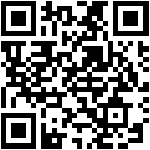According to the World Atlas, the New York metro area is home to nearly 20 million people who speak more than 800 languages. While English is predominantly spoken in nearly 65% of New York area homes, nurses working in the metro area will likely treat patients who do not speak the same language as they do. As a result, at least occasionally, they’ll need to call on the help of translators.
Hospitals and clinics that receive federal funds, such as Medicare or Medicaid, are required to provide an interpreter under the Americans with Disabilities Act (ADA). While some patients may want to rely on their family for help, a recent report “Interpreters in Healthcare,” published in the peer-reviewed journal Nursing 2021, found that patients receive “person-centered” healthcare when a third-party translator is called in to help. Person-centered care is defined as a relationship between patients and healthcare professionals built on talking, active listening, and a mutual understanding.
Often, a patient will have a relative who speaks English try to help by translating conversations. However, it can adversely impact the quality of care the patient receives. The report found that patients may withhold critical information they do not wish to share with their relative, or the relatives may try to protect their family member by withholding or editing information. The relative may also not have a good grasp of medical terms, which can hinder their ability to properly translate important information.
A trained medical interpreter, however, will have extensive language skills as well as knowledge of medical terminology. Because they understand the importance of person-centered care, an interpreter can also offer objective and verbatim translations while respecting professional discretion.
While interpreters will help connect with patients, nurses need to adjust their communication strategy, too, to ensure patient comprehension. Asking patients to repeat what they hear can be helpful for eliminating misunderstandings. Nurses should also talk at a slower pace so the interpreter could take time to relay the information. Always maintain eye contact with the patient, giving them your full attention. And, if possible, printed materials should be given in the patient's first language.
Communicating with patients from diverse cultural backgrounds can be challenging, but it also gives nurses an opportunity to gain a broader perspective. St. Paul’s School of Nursing can help put you on the path to this important career by providing you with a great education. Click here for more information or call us today at (855) 822-3018 and speak to one of our career counselors.


